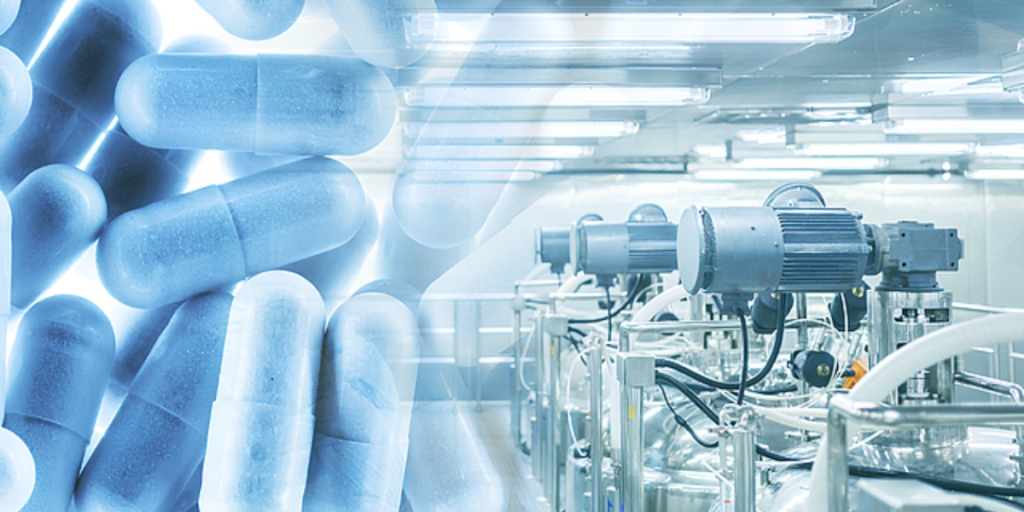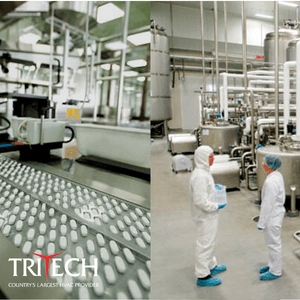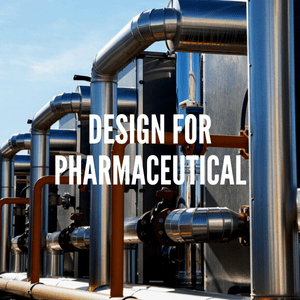
HVAC System in Pharmaceutical
HVAC stands for residential or commercial heating, cooling, and air conditioning services. Pharmaceutical companies have a sensitive environment and they must control that for manufacturing. Good manufacturing practice (GMP) is a much-needed requirement for pharmaceutical companies. HVAC is crucial to any pharmaceutical company’s daily production. Even in Bangladesh, companies like Incepta or Square are continuously improving their pharmaceutical HVAC system by using world-class dehumidifier products like Fisair.
What is HVAC?
HVAC refers to heating, ventilation, and air conditioning. The main goal of an HVAC system is to provide a fresh and comfortable environment for its users. Becoming more popular with builders, these systems use fresh air from outdoors to supply a kind of high air to indoor units. HVAC consists of the split, VRF, chiller, and ducted air conditioning systems.


How is HVAC related to pharmaceuticals?
HVAC improves the pharmaceutical industry with potential safety, product quality, and GMP compliance. The HVAC system is responsible for the air quality, ventilation units, and exhaust units within a pharma production house. Besides central air conditioning units, HVAC performs in wider aspects for pharmaceuticals.
HVAC requirements are essential concerns to design pharmaceutical manufacturing facilities.
Importance of HVAC system in the Pharmaceutical industry:
HVAC system plays an important role in maintaining the indoor environment with preferable temperature, humidity, and air quality. The main challenge for the pharmaceutical industry is to keep up with its production and maintenance environment. The HVAC system plays an important role in keeping the environment updated.
Prevent Cross Contamination: The movement of harmful bacteria from one person or product to another causes cross-contamination. Its hampers productivity and product quality. The reasons behind cross-contamination are poor design, defective
Control temperature: The standard temperature for any pharmaceutical factory is between 20 to 25 degrees Celsius. It must be a continuous flow of air at this temperature.
Control Humidity: The ideal relative humidity of the pharmaceutical industry is not more than 55+5%. If this relative humidity is not specific it causes metal corrosion, decreases microbial growth,
Control Pressure: Air always moves from high pressure to a low-pressure area, so particular pressure has restricted the travel of particles from a lower clean area to a cleaner area.
Control airborne particles: Airborne particles are micro size bacteria present in the air. In the pharmaceutical industry, airborne particles can create contamination in the cleanroom.
Energy Saving: HVAC product is essential for Pharmaceutical industries to maintain the environment productive and keep the workplace comfortable. It seems costly, on the contrary, HVAC systems feature is energy and cost savings. Square Hospital Bangladesh used a chiller for HVAC purposes and saved 6 core taka in 6 years.
Challenges for HVAC in Pharmaceuticals?
The pharmaceutical industry’s environments are under surveillance for 24 hours. The product will be hampered if there is any accident, or any change in the temperature, humidity, pressure, or any other requirements. There are some challenges to maintaining the pharmaceutical industry with its proper requirements.
Understanding cleanrooms work: Many people think that having the right number of air changes is all they need to do to make a room clean. If you are up on cleanroom design and standards, you’d know that air-change rate has been released as a single critical parameter in cleanroom design. You have to control other criteria. for example, pressure and humidity.
Understanding how air filters work: If you understand the filter mechanics, it’s easy to explain that air filters offer good protection against tiny particles like airborne bacteria. The pandemic has started to raise awareness of this. In the pharmaceutical factory the understanding of air filters to remove airborne bacteria.
Understanding the process: The process is important in manufacturing facilities. HVAC is the handler of the process. Creating an environment that, at worst, won’t decrease the quality of the product and, at best, contributes to the quality of the product. If the HVAC system doesn’t provide a particular process, then the cost of the HVAC system will be wasted.
Why do we need HVAC for Pharmaceuticals?
Maintenance of proper conditions for manufacture: In pharmaceutical companies, the productivity rate depends on the humidity, cleanliness, and temperature, and maintains these requirements at the same time. HVAC systems can provide these requirements at the same time and maintain the manufacturing rate.
Measurement of humidity directly: The moisture that exists in the present air gets consumed and determined by a synthetic process. The difference between initial and final humidity is the measurement of humidity. This way of measuring humidity is efficient and time-consuming.
Dehumidification humidity removal: Dehumidification is a process where moist air contact with a cold surface is removed from the air. In the pharmaceutical industry, the production is going under a particular temperature and humidity. So, there would be an emergency for removing moisture air directly. The dehumidification would be a great help then.
HVAC system efficiency in the Pharmaceutical industry:
HVAC system increases the efficiency of the pharmaceutical industry for manufacturing and maintaining product quality. First and foremost, pharmaceutical factories need to maintain a constant temperature of all-time indoor units for manufacturing and storing the product. Cross-contamination spoiled the product and its quality. HVAC system prevents that also. Pharmaceutical factories need to monitor temperature, humidity, and pressure all the time. HVAC system confirms that criteria to remain productive.
Tritech products and projects for the pharmaceutical industry:
Tritech is one of the leading companies in the HVAC sector in Bangladesh. We have working experience on many projects throughout the world and are now working on 700-plus projects. Tritech also has experience working with the pharmaceutical industry on their HVAC systems.
Incepta Pharmaceuticals and RAK PHARMACEUTICAL PVT. LTD. Tritech serves them with its most popular HVAC product, Midea VRF, which is an industrial air conditioner. Midea produces sustainable and suitable VRF air conditioners for heating and cooling. Tritech sells Midea VRF V6 and Midea VRF VX in the HVAC market.
Dehumidifier for Pharmaceutical
A dehumidifier is the most important HVAC product for pharmaceutical industries. Moisture and excess humidity spoil the product’s standard quality. Dehumidifiers prevent moisture and excess humidity in the air to keep the product quality at its best. Tritech provides the best Fisair dehumidifiers throughout Bangladesh. Tritech provides Fisair DFLEX, DFRA, DFRB, and DFRC series dehumidifiers.
Pharmaceutical companies have a more sensitive production environment than any other industry. The environment needs to be under control for 24 hours. The HVAC system provides heating, ventilation, and air conditioning systems to keep any industry’s environment work-friendly, productive, and low in energy waste. As pharmaceutical companies provide medicine and drugs for people. So, companies need to manufacture the best quality products. Tritech is a company that always thinks of people’s services and we are promised to people that give them the best service directly or indirectly.

